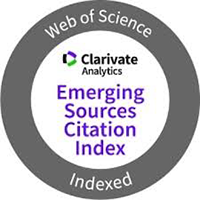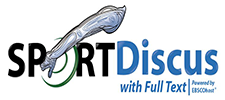The selection of opponents for Iran's national football team in their friendly matches: coincidence or directed diplomacy?
DOI:
https://doi.org/10.20868/mhd.2024.26.5051Keywords:
Iran, Latin America, diplomacy, sport, soccer/football.Abstract
Sports diplomacy through soccer has played a key role in the Islamic Republic of Iran's penetration strategy in Latin America since 1982. This strategy has been carefully developed, backed by ideological affinities with the Latin American left. The consolidation of this relationship was significantly marked
with the rise to power of Hugo Chavez in Venezuela in 1999. This led to close diplomatic and economic collaboration between Iran and Venezuela, even overcoming obstacles related to economic sanctions, and manifested itself in tangible ways through military and political support. In this sense, the soft
power of soccer appears as a ratification mechanism for these agreements.
The methodology applied is a mixed one, combining quantitative and qualitative analysis. In the quantitative analysis, the historical data of the Iranian national team's friendly matches have been examined in detail, identifying patterns in the choice of opponents and their possible relationship with political events. While, in the qualitative analysis, a thorough review of academic papers, government reports and political speeches has been conducted. This has allowed us to identify political discourses and narratives, as well as to understand the political motivations and objectives that influenced the choice of rivals.
Ultimately, this research concludes that the choice of opponents for Iran's friendly soccer matches has not been random, but a meticulously planned diplomatic strategy. This undeniable relationship between soccer and politics reflects the importance of sport as an instrument of soft power and international projection in the Islamic Republic of Iran. Sports diplomacy, in this context, has been a crucial resource in both the internal legitimization and external projection of the Iranian regime, contributing significantly to its strategic presence in Latin America.
Downloads
References
Bailey, Norman, 2012. “Iran’s Venezuelan gateway”. The American Foreign Policy Council. 5.
Bandyopadhyay, Kausik y Mallick Sabyasachi. 2009. “Fringe Nations in World Soccer”. Routledge.
Bartolomé, Mariano César y Elsa Llenderrozas. 2002. “La Triple Frontera desde la perspectiva argentina: principal foco terrorista en el cono sur americano”. En Center for Hemispheric Defense Studies (REDES). Brasilia.
Bakhshi Chenari, A. R., M. Godarzi, S. N. Sajjadi, M. y Jalali Farahani. 2021. “Identify and Prioritize the Effective Factors of Sport Diplomacy Development in Islamic Republic of Iran’s Foreign Policy”. Sport
Management and Development, n.º 10.
Bornsztein, Maia Carolina. 2021. “Irán en América Latina: ¿Presencia constante o cambiante?”. Tesis doctoral, Universidad Torcuato Di Tella, Buenos Aires.
Botta, Paulo. 2005. “Relaciones comerciales entre Irán y América Latina durante la presidencia de Mahmud Ahmadineyad (2005-2009)”. Relaciones Internacionales 39.
Bromberger, Christian. 2020. “Football and the authoritarian regime in Iran”. Soccer & Society, n.º 21.
Caro, Isaac. 2002. Fundamentalismos islámicos. Guerra contra Occidente y América Latina. Santiago de Chile: Sudamericana, 2002.
Caro, Isaac. 2013. “Los atentados de 1992 y 1994 en Buenos Aires: Sus repercusiones en las relaciones de Irán con Argentina”. Atenea (Concepción), n.º 507.
Caro, Isaac e Isabel Rodríguez. 2009. “La presencia de Irán en América Latina a través de su influencia en los países del ALBA”. Atenea (Concepción), n.º 500.
Chehabi, Houchang, E. 2002a. “A Political History of Football in Iran”. Iranian Studies, 4.
Chehabi, Houchang, E. 2002b. “The juggernaut of globalization: sport and modernization in Iran”. The International Journal of the History of Sport, 2–3.
Chehabi, Houchang, E. 2005. “Sport and Modernization in Iran”. Sport in asian society: past and present, editado por Hong En Fan y J. A. Mangan. New York, Routledge.
Chehabi, Houchang, E. 2006. The politics of football in Iran. Soccer & Society, 2-3.
Clinton, Bill. 1998. “Excerpt of Videotaped Remarks on the United States-Iran World Cup Game. June 18, 1998”. Public Papers of the Presidents of the United States: William J. Clinton (1998, Book I). GovInfo | U.S. Government Publishing Office. El vídeo de las declaraciones de Bill Clinton puede consultarse en: https://www.youtube.com/watch?v=2yv3KnX1cOM.
Colmenares, Leopoldo E. 2011. “Implicaciones estratégicas de las relaciones entre Irán y los Gobiernos izquierdistas de la ALBA”. Military Review, n.º 5.
Deyo, Julianna M. 2013. “Sports and International Relations: the role of soccer in international conflicts and resolutions”. Tesis Doctoral, Universidad de Tennessee.
Espinosa, Ángeles. 2018. “Irán permite por primera vez que entren mujeres y hombres a un estadio a ver el partido contra España”. El País, 20 de junio de 2018.
Ferhad, Ibrahim y Heidi Wedel, ed. Gegenkultur als Ausdruck dell Zivilgesellschaft in der Islamischen Republik Iran. Opladen: Springer, 1995.
Garrido, Luis Javier. 2005. “El camino es el socialismo, dijo Hugo Chávez en Porto Alegre”. La Jornada, 31 de enero de 2005.
González del Castillo, Javier. (2020). “Deporte y Diplomacia en la República Islámica de Irán. Origen, evolución y uso en las relaciones con Latinoamérica”. Una vieja amistad: cuatrocientos años de relaciones históricas y culturales entre Irán y el mundo hispano / coord. por Fernando Camacho Padilla, Fernando Escribano Martín. Sílex.
HispanTV. 2017. “Lucha Messi-Ronaldo ya en Irán: Encuentran doble iraní de Ronaldo”. 29 de mayo de 2017.
Kourliandsky, Jean-Jacques. 2013. “Irán y América Latina: más cerca por una coyuntura de futuro incierto”. Nueva Sociedad, n.º 246.
La Nación (Argentina). 2010. “Irán, Brasil y Turquía firman acuerdo para resolver crisis nuclear iraní”, 17 de mayo de 2010.
León, Pablo Gabriel. 2015. “El proyecto misilístico Cóndor: su origen, desarrollo y cancelación”. Tesis doctoral, Universidad de San Andrés, Buenos Aires.
Malamud, Carlos y Carlota García. 2017. Los actores extrarregionales en América II (Irán). Madrid, Real Instituto Elcano.
Manual de Organización de la Embajada de México en Irán (2004). http://sre.gob.mx/images/stories/docnormateca/manexte/embajadas/MOEMIran.pdf.
Oficina de Información Diplomática. 2018. Irán República Islámica de Irán. Madrid, Ministerio de Asuntos Exteriores, Unión Europea y Cooperación.
Parchizadeh, Reza. 2018. “Opinion: How Football Has Become a Political Tool in Iran”. Kayhan Life, 25 de junio de 2018.
Pfister, Gertrud. 2005. “Women and sport in Irán: Keeping goal in the hijab”. En Sport and Women: Social Issues in International Perspective, editado por Gertrud Pfister y Ilse Hartmann-Tews. New York, Routledge.
Pinedo, Federico . 2015. “Informe sobre las relaciones entre Irán y América Latina”. Friends of Israel Initiative.
"Politics in football: USA vs Iran in '98". https://www.fifamuseum.com/en/blog-stories/blog/politics-infootball-iran-vs-usa-in-98-2611344/ (consultado el 29 de abril de 2024)
Reuters. 2023. “Irán iniciará renovación de complejo de refinación más grande de Venezuela en próximas semanas: fuentes”. Euronews, 3 de febrero de 2023. https://es.euronews.com/2023/02/03/venezuelairan-refinerias.
Schirazi, Asghar. 1995. “Gegenkultur als Ausdruck dell Zivilgesellschaft in der Islamischen Republik Iran”. En Probleme der Zivilgesellschaft im Vorderen Orient, editado por Ibrahim En Ferhad y Heidi Wedel. Opladen: Springer.
Simko, Axel. 2015. El fútbol como “soft-power” en las Relaciones Internacionales: El conflicto Palestino-Israelí expresado a través del fútbol, Tesis Doctoral. Buenos Aires.
Steffan, Heinz Dieterich. El socialismo del siglo XXI. Bogotá: Fica, 2003.
Stokkermans, Karel. “LG Cup Four Nations Tournaments”. Última actualización: 18 de mayo de 2007. http://www.rsssf.com/tablesl/lgcup.html.
Tamara's Football Mosaic. 2013. “Political history of football in Iran”. 16 de noviembre de 2013. https://tamarasfootballmosaic.wordpress.com/2013/11/16/a-political-history-of-football-in-iran/.
Wilcox, Philip (U.S. Department of State Coordinator for Counterterrorism). 1995. “Testimony before the House of Representatives Committee on International Relations”, 28 de septiembre de 1995.
Downloads
Published
Issue
Section
License
Authors who submit to this journal agree to the following terms:
- Author(s) keep copyright and guarantee to the journal the right to be the first publication of the work as licensed under Creative Commons Attribution-Noncommercial-ShareAlike 4.0 International as initial publication in this journal.
- Author(s) can establish additional agreements for non-exclusive distribution of the version of the work published in the journal (for example, to an institutional archives or to publish it in a book), with an acknowledgment of its initial publication in this journal.
- It is allowed and authors are encouraged to disseminate their work electronically (e.g, in institutional open archives or on their own website) before and during the submission process, as it can lead to productive exchanges, as well as a citation earlier and more of published work (See the Effect of Open Access).










